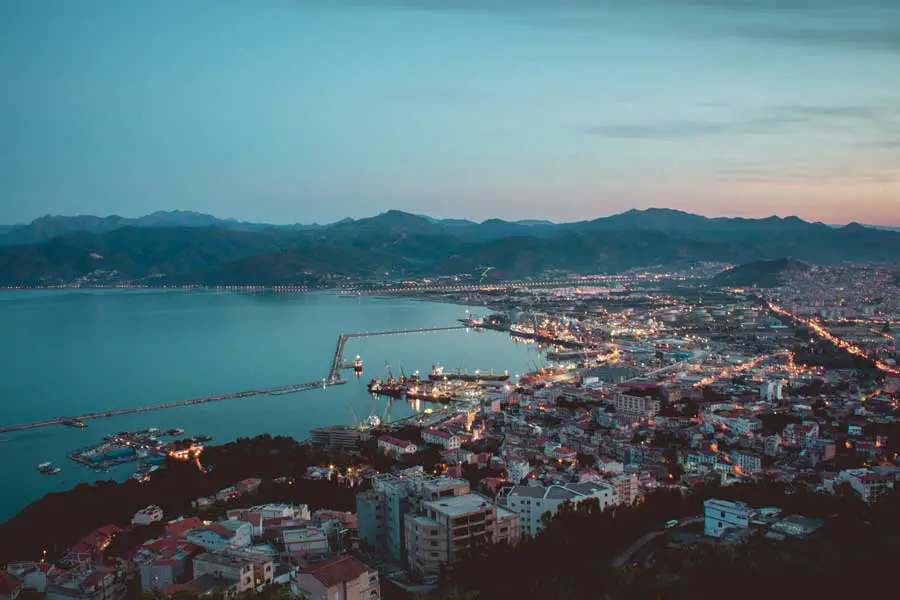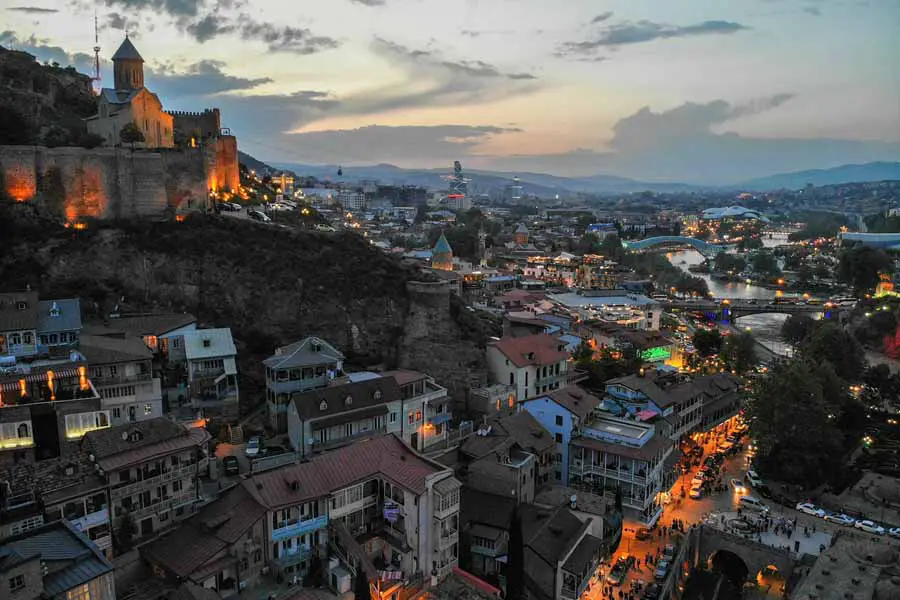Nicknamed ‘‘The land of a thousand smiles,” Thailand is known for gorgeous landscapes, tasty food, enticing culture, and the locals’ smiling faces. Thailand is one of the best Southeast Asian countries to visit, even if you are traveling alone.
Solo female travelers afraid of being harassed will consider this good news. This guide gives you an in-depth analysis of safety concerns you may have about visiting Thailand and tips on what to do to stay safe.
The country has its share of shady activities, but if you follow guidelines and obey local authorities, you will enjoy the stay.
Is Thailand Safe to Visit?
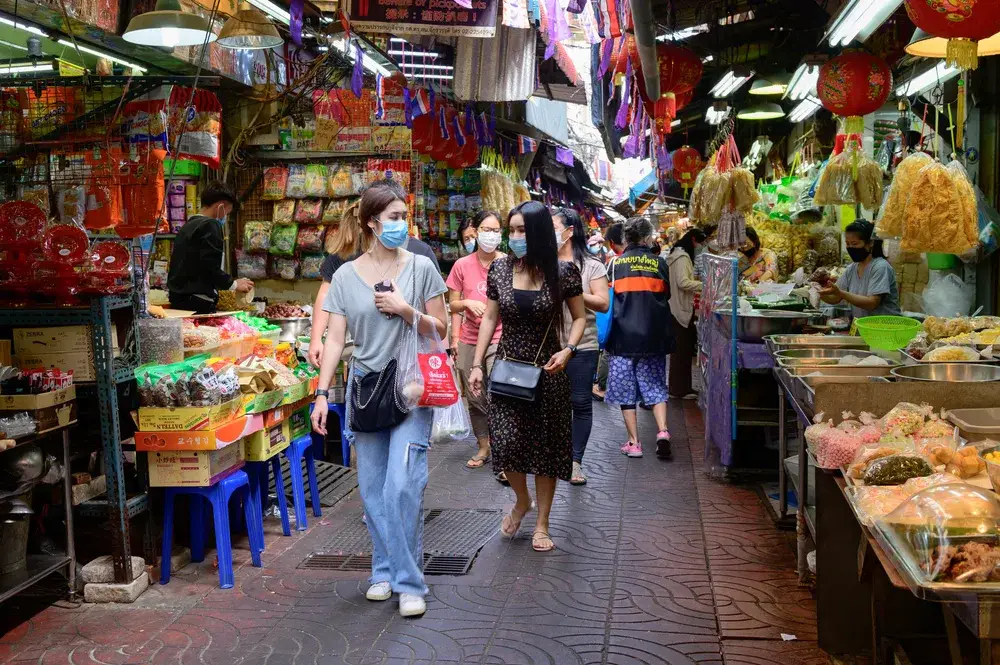
Thailand is a very safe country to visit, provided you use common sense. The US Department of State considers Thailand a level 1 destination, meaning travelers need to exercise normal precautions.
According to a 2021 survey by CNBC, most American travelers place Thailand in the top ten list of safe countries to visit. That said, this Southeast Asia country isn’t immune to crime.
Opportunistic crimes like pickpocketing, burglary, and scams are prevalent. Violent crimes are not as rampant, but they occur. Other issues like lack of medical treatment outside prominent cities and spiking women’s drinks with sedatives are other safety concerns.
Some beaches don’t have enough lifeguards to ensure the safety of tourists, and scammers are everywhere waiting to rip you off your hard-earned cash.
Apart from crimes, lack of proper medical treatment, and lack of safety on beaches, you may come across other safety concerns such as:
- Bad neighborhoods
- Risky transport methods
- Contaminated food
- Terrorism and demonstrations
Crime in Thailand
Thailand has cases of drug trafficking and corruption. Major drug trafficking areas are Bangkok, Phuket, and Pattaya. Animal abuse is widespread, with elephants most targeted for their tusks.
Such crime does not affect tourists, but those that affect tourists include pickpocketing, which is common in urban Thailand. Thugs often target tourists changing money at currency exchanges and rob them.
It is also possible to have your drink spiked and have your cash and valuables stolen in bars. Foreign women are more likely to have sedatives added to their drinks than local women.
Violent crime does not happen at an alarming rate, but it still happens and includes robbery, assault, rape, and murder.
To avoid falling victim to such crimes:
- Keep an eye on your belongings.
- Don’t walk alone in dark and deserted places. If possible, go to the bar with a colleague.
- Change your money at the bank to avoid theft at currency exchanges.
- Monitor your drink to prevent it from getting spiked.
Avoiding Bad Neighborhoods

Avoid the following provinces where ethnic conflict reigns:
- Yala
- Narathiwat
- Pattani
- Songkhla
In these four provinces, over 6,500 people, including foreigners, have been killed up to date. Shootings and bombings are the most common methods used to kill.
Targets include government officials, religious and political leaders, churches, schools, and other public places. There are also red light districts to avoid due to their bad reputation for drugs, drinking, and sex tourism.
The famous red light districts are Soi Cowboy, Nana Plaza, and Patpong. If you want to know which provinces o avoid visiting due to terrorism, sign up to the State Department’s Smart Traveler (STEP) to get updates.
Terrorism and Demonstrations
Attacks, including bombings, can happen in Bangkok and Phuket. Terrorists target tourist hotels, worship houses, schools, malls, public transport, public rallies, and festivals.
In 2016, terrorists killed four people and injured 30 when they detonated Impoverished Explosive Devices in popular tourist spots. In 2017, attacks at a Bangkok military hospital and the National Theater wounded 26 people.
There haven’t been significant incidences of terrorism since 2019, but periodical incidences are still a concern in Thailand.
In southern Thailand, there’s a risk of terrorism-related violence because there’s minimal government support. It’s best to avoid this part of the country. Demonstrations around the US Embassy in Thailand happen often.
Other demonstration sites include the Victory Monument, Democracy Monument, Ratchaprasong intersection, Thammasat University, and the Bangkok Arts and Cultural Centre.
Practice these safety tips, and you will be free of unpleasant incidences:
- Be alert to potential threats.
- Stay away from public demonstrations.
- Follow the media to know what’s going on.
- Follow the local authority’s instructions.
- Have an exit plan. You’ll need it if you encounter emergencies.
- Report suspicious packages. They might be bombs.
The US Department of State warns against visiting Yala, Narathiwat, Pattani, and Songkhla provinces due to civil unrest. You may risk injury or death due to indiscriminate attacks on foreign citizens.
Beach Safety
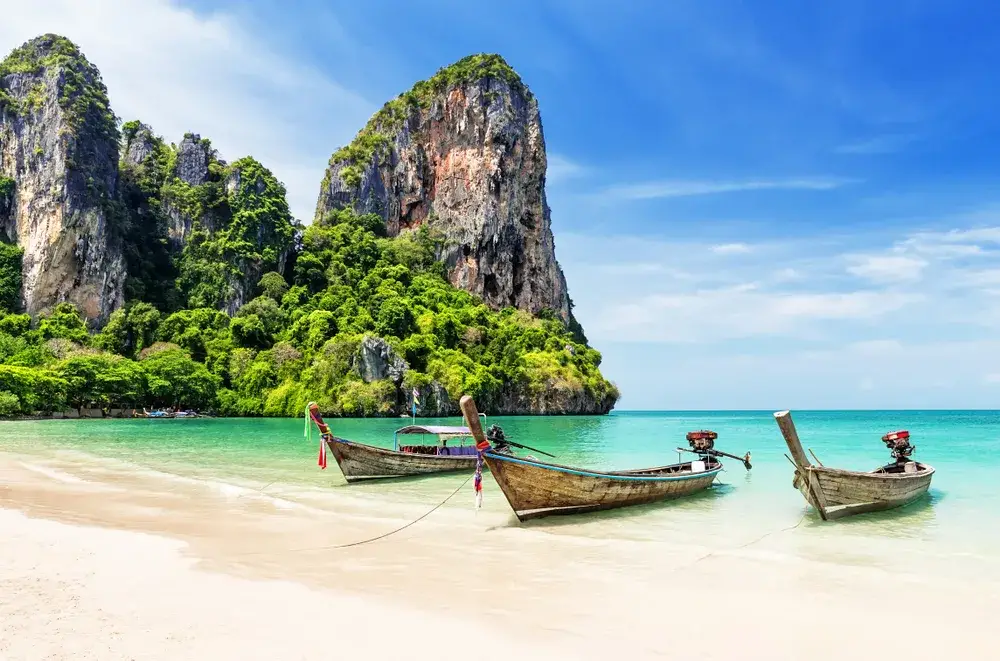
Phuket beaches lack enough lifeguards, and the few present are not fully qualified. Tourists may be in danger if there is no one to warn them about rip tides. If there are warning flags on the beach, don’t swim.
Be cautious when swimming off the west coast of Phuket during the rainy season (May – October). Phuket waves can be as high as four feet with rip currents. There is the possibility of a jellyfish stinging you.
Jellyfish usually swim close to the shore during rainy seasons, and their sting is deadly. To be safe on the beaches, follow these tips:
- Don’t go swimming when drunk. You may drown.
- Don’t venture into the deep sea no matter how well you swim.
- If you get caught by waves, duck under them to let them pass.
- If stung by a jellyfish, treat the area with vinegar and ammonia.
- Don’t touch sea creatures. Many reef animals are poisonous.
Health Concerns
Your health may be at risk in several ways when you visit Thailand. Their street food is tasty and cheap, so you may be tempted to sample everything on display.
That could put you at risk because you don’t know how long the food has been sitting in the open. Stick to these guidelines to ensure your health isn’t at risk:
- See your doctor before traveling if you have respiratory problems. Bangkok’s air is polluted.
- Don’t accept food on display. Ask the vendors to cook a fresh dish for you.
- Don’t drink tap water. Also, avoid ice cubes made from tap water.
- Wash your hands well before eating and after coming from tours.
- Animals in rural Thailand may have rabies. Avoid contact with them, and get vaccinated.
- Although malaria is not widespread in Thailand, wear mosquito repellent when traveling.
- Buy medical insurance with evacuation coverage before traveling.
Transport Incidences
Taxis and tuk-tuks are generally safe, but some will always try to overcharge. In Phuket, the “taxi mafia” control taxi fares. They inflate fares on the island compared to the rest of Thailand.
When Grab (a local Uber version) started operating in Phuket, they were harassed and threatened for charging lower fares. If you take a taxi here, be aware that rival taxi drivers might harass you and the driver.
Beware of boat tours. In 2018, almost 40 foreigners died when the boat sank. These boats are overcrowded and lack enough life vests and fire extinguishers. This problem is common with cheap yachts and ferries.
Forget about renting motorbikes in a country known for terrible road safety. A 2019 New York Times report claimed that Thailand holds second place for the highest road deaths per capita and ranks first for motorcycle accidents.
Keep yourself safe in vehicles in these simple ways:
- Organize your travel with your hotel. Their drivers will not rip you off.
- If you enter a taxi, the meter should start reading at 35 Thai baht, not less. Don’t let them overcharge you.
- Ask for a female driver. They are safer than males.
- Keep off motorcycles. Your insurance might not cover you in case of an accident.
- Don’t hand over your passport as security for renting a motorcycle. The motorcycle owner may charge you exorbitant money to give it back.
Scams
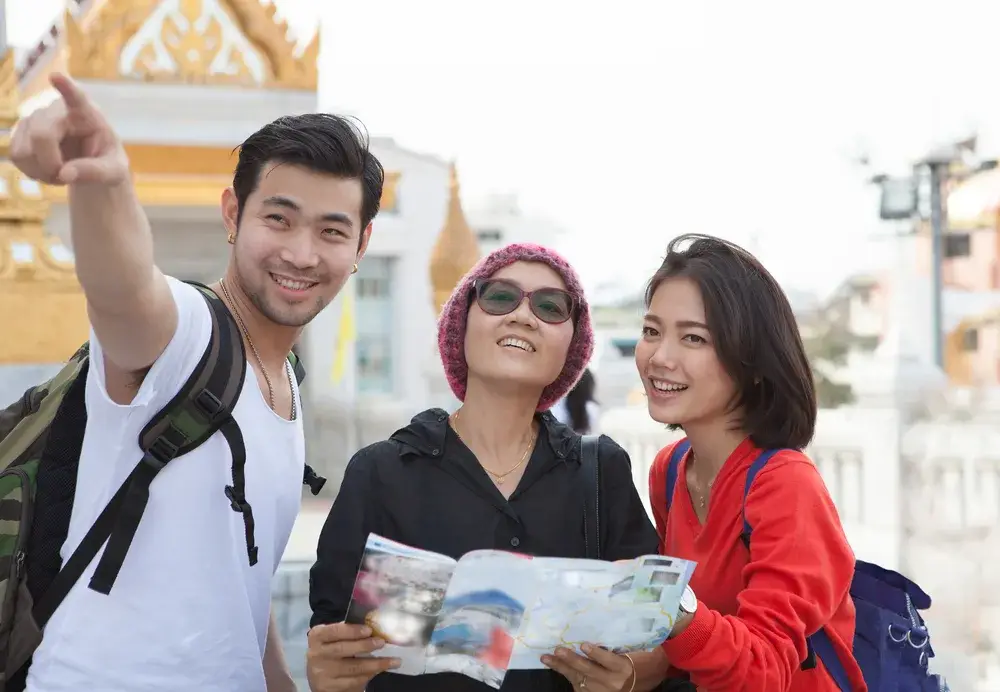
If you’ve never fallen victim to an ingenious scam, welcome to Thailand, a land famous for cleverly crafted scams. Most scams are harmless because no assault is involved. The only thing you’ll lose is money if you fall for it. If it looks or sounds too good, it’s probably a scam. Walk away.
Below are scams to watch out for:
- Boat rental scams: Boat vendors rent out their boats, and when you return them, they point to an old crack, claiming you have damaged it and you should pay.
- Tour scams: Several companies charge upfront for tours and then refuse to take you on tour or inflate the price later.
- Gem scams: Retailers trick you into buying fake gems made of glass, claiming you can flip them at a higher price back home.
- Internet romance scams: Thai singles search for foreign victims in dating apps and pretend to fall in love with them.
- Financial scams: Be wary of groups posing as charities asking for donations or individuals befriending you and then asking for emergency funds when they’ve gained your trust.
Below is what to do to avoid falling victim to scams:
- Book all your tours at a large tour business. Avoid the small tour businesses.
- If scammers take you to a gem shop, leave before they trick you into buying.
- Avoid deep friendships with people you’ve just met.
- Be wary of online dating relationships that are moving too fast.
- If you want to donate to a charity, confirm its authenticity first.
Border Security
Thailand has a few issues with its neighbors.
Myanmar Border
Along the Thai-Myanmar border, there are occasional clashes between Thai security forces, armed criminal groups, and drug traffickers. Outside of the major cities, police and military checkpoints are active, and travelers produce identification.
Enter Myanmar only through an official border checkpoint and after obtaining any necessary permissions and visas from Burmese/Thai authorities.
Cambodian Border
Cambodia and Thailand fight over the international border near the Preah Vihear temple. The two governments are working out the border dispute. You should exercise extra caution in border areas and adhere to local authorities’ instructions.
There are unexploded landmines in the border area.
So, stay on marked paths, particularly near Ta Krabey. When traveling near the Cambodian border or at land crossings between the two countries, keep an eye on the local situation.
Laos Border
Not all border crossings into Laos are open to foreigners. You may need to obtain a Laos visa before crossing. Your Thailand pass will list applicable border checks. Chiang Rai, which borders Thailand and Myanmar, is not open.
Things to Consider
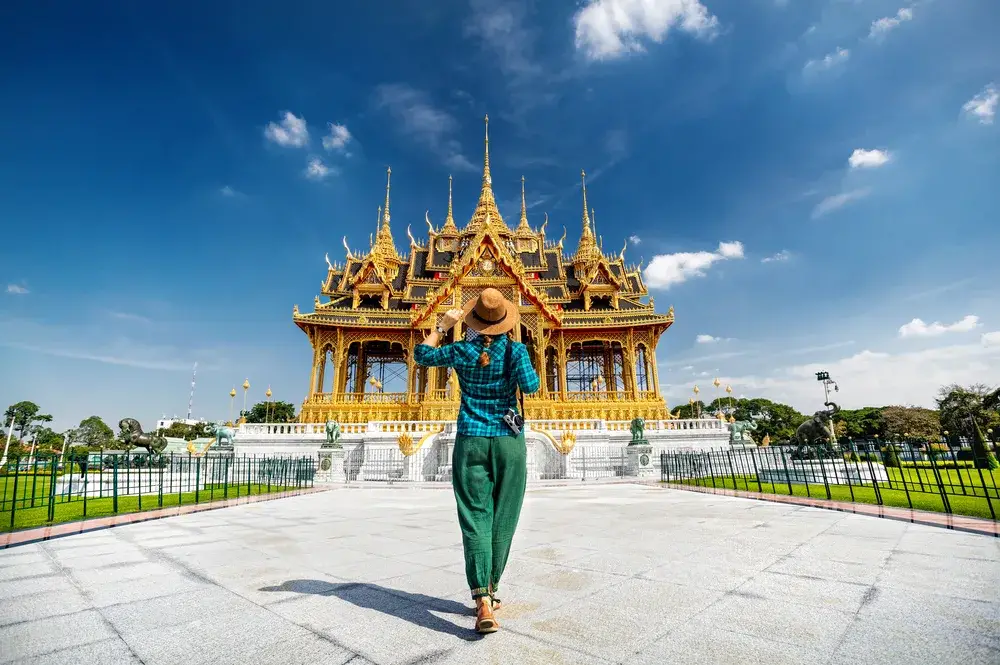
Thailand is a safe country as long as you take precautions. Here are additional tips to help you during your stay:
- Don’t overstay in the country on a visa. You will be confined for up to two weeks in a crowded place with no health or security measures.
- You will be severely penalized if found using or trafficking illegal drugs. Penalties include heavy fines or death.
- Shoplifting or possessing counterfeit or pirated goods will result in a lengthy detention, followed by deportation.
- Watch your words. Making defamatory comments about the royal family will get you up to 15 years in prison. Even criticizing tourist spots can get you in trouble.
- If you are a woman, don’t wear provocative clothing. It may lead you into trouble with Thai males.
- Have a map or a navigation app. You’ll need them if you get lost.
If you ever need help in any situation, the US embassy in Thailand will assist you with the following:
- Contact your relatives with your written permission.
- Give you a list of the best local attorneys.
- Replace a lost, stolen, or damaged passport.
- Explain Thailand’s criminal justice system.
- Help you find accommodation and arrange for your flight home.
- Help you find reliable medical care.
Frequently Asked Questions
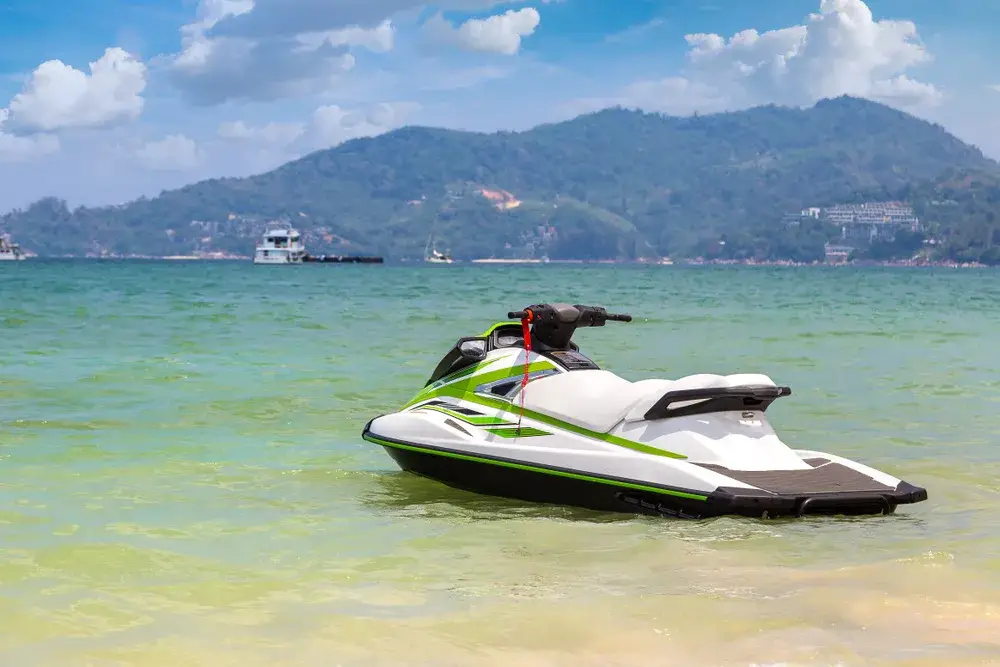
Below are common questions about Thailand’s safety.
Is Phuket, Thailand, safe?
Phuket is safe. It’s the largest island in Thailand with plenty of beaches. Watch out for jetski scammers who charge tourists for damages they didn’t inflict on their boats. A red flag at the beaches means “Don’t swim.”
Is Thailand a safe place to stay?
Thailand is a safe place to stay, provided you avoid problematic areas. Violent crime is not rampant, so you will mostly come across pickpockets and scammers trying to rip you off.
Is Thailand safe for solo female travelers?
Thailand is a safe place for solo female travelers. However, as with all other areas, women are more susceptible to harassment than men. Dress modestly to avoid harassment, and don’t travel in deserted places alone.
What are the safest places to live in Thailand?
The safest places are Chiang Mai, Hua Hin, Krabi, Koh Samui, Chiang Rai, Kanchanaburi, Phang Nga, and Kuala Lumpur. Avoid southern Thailand because of political and religious conflicts.
What should I avoid in Thailand?
- Criticizing the royal family will land you in jail for 15 years.
- Overstaying your visa will get you confined for two weeks.
- Drug possession will lead to heavy penalties or death.
- Don’t swim on the beach when there’s a red flag.
So, Is Thailand Safe to Visit?
Thailand is safe for people who are cautious and look out for their surroundings. Petty theft, scams, and spiking people’s drinks are the most common crimes. More serious crimes like violent robbery, rape, and murder happen but not at alarming rates.
Other safety issues include lack of beach safety, terrorism, demonstrations, food safety, and road unsafety, including numerous motorcycle accidents.
Stay away from crimes like drug trafficking or shoplifting, follow local authority’s guidelines and the tips mentioned in this guideline, and your stay in Thailand will be free from unfortunate incidents. Happy travels!

